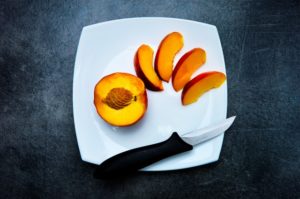There have been plenty of disturbing reports lately concerning recalled foods, such as contaminated Romaine lettuce. Popular restaurant chain McDonald’s recently experienced a recall on their salads. But what other unclean foods we need to be cautious of? There are plenty that are prone to salmonella and Listeria. But here are just four that have been infected by these poisons.
The first one is cold cut deli meats. According to the HealthiGuide article,”10 Dirtiest Foods You’re Eating,” these deli meats have been labeled as a high risk for causing listeriosis by a joint team of researchers from the USDA, FDA, and Centers for Disease Control and Prevention. Listeria thrives within refrigerator temperatures and cold cuts are eaten cold. So be sure to don’t buy more meat than you can eat within two days because the germs multiply quickly. Also, did you know a good killer of listeria on deli meat is mustard? Researchers at Washington State University killed off 90 percent of three potent pathogens including listeria within two hours of exposing them to mustard.
Another one is sprout veggies. These consist of broccoli, alfalfa and peas. While all of these are packed with phytonutrients, the warm, humid climate needed to grow them are packed with listeria, salmonella and E. coli bacteria. Sprouts have even been blamed for at least 40 food outbreaks in the U.S., Canada, and Europe over the past 20 years. So what’s the solution? The article admonishes to refrigerate sprouts as soon as you get them and before eating them. It also will be beneficial to grow your own sprouts.

I probably will see a lot of these fruits when I visit Georgia and these fruits are peaches. They may be used in my favorite desert, peach cobbler, but they also happen to be coated with nine different pesticides. This occurs by the time they arrive in the produce department at your grocery store, making peaches one of the dirtiest fruits out there. Trying opting for organic or farmer’s market produce peaches instead. The pesticide residue in organic is minimal compared to non-organic peaches.
The last dirty food is another favorite fruit of mine and that’s cantaloupe. This sweet, tasty fruit had a recall some years ago in Colorado when it was reported that it was infected with listeria, a bacterium more common in meats such as cold cuts. Because cantaloupes grow on the ground and have a netted exterior, it is prone to Salmonella getting on it. HealthiGuide article recommends scrubbing the fruit with a dab of mild dishwashing liquid for 15 to 30 seconds under running water.
So, with so much bacteria in our foods, we have to not only be careful with what we put in our bodies, but make sure that what we buy is completely clean. If it is not, you will be paying the price of potential food poisoning. For more information on the above article, visit www.healthiguide.com.

